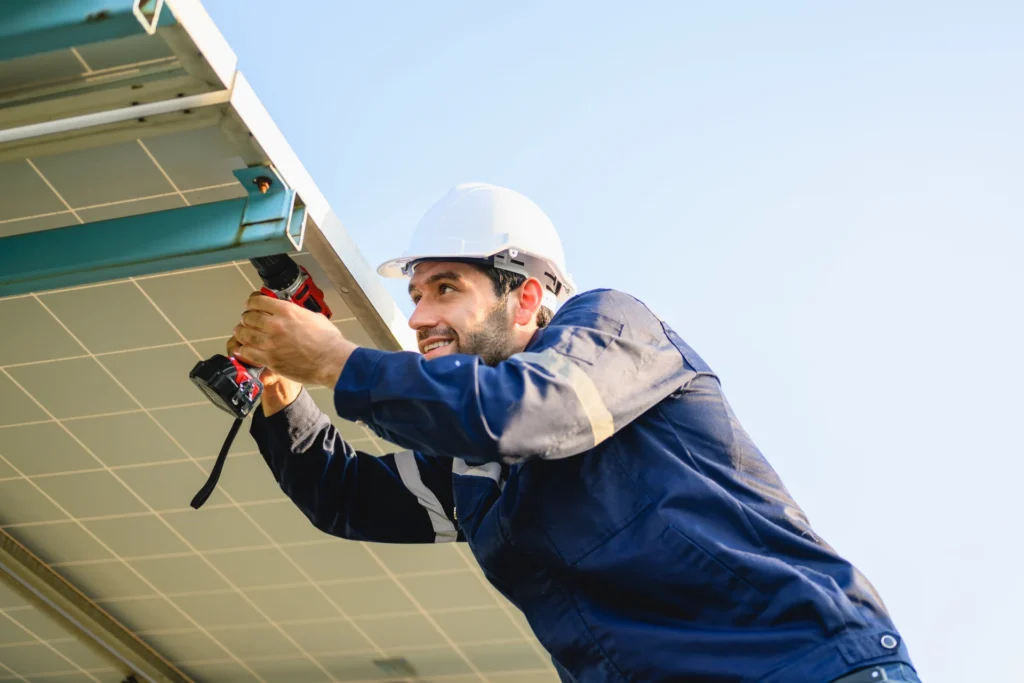
As more and more homeowners opt for solar panel systems to power their homes, safety concerns and adherence to building regulations become paramount. While solar panels offer a clean and cost-effective energy source, improper installation or neglect to follow local codes can result in dangerous electrical hazards or even legal issues. Therefore, it is crucial for homeowners considering a solar panel system to take necessary precautions and ensure that the installation process adheres to regulatory standards.
Ensuring a safe and compliant solar panel system requires proper planning, execution, and maintenance. Homeowners must choose reputable installers knowledgeable about local regulations and have experience in installing solar panel systems. Obtaining permits from the local government is also essential to avoid potential legal problems. Following building codes during installation ensures that the system meets safety standards while ensuring proper wiring and grounding prevents electric shock hazards. Furthermore, monitoring and regular system maintenance are crucial for optimal performance and early identification of potential safety risks. Following these best practices allows homeowners to enjoy renewable energy benefits without compromising safety or compliance with regulatory requirements.
Opting for a reputable installer of solar panel systems is crucial in complying with safety standards and adhering to building codes. Choosing an installer with a proven track record of installing high-quality solar panel systems that meet or exceed industry standards is important. The best way to find a reputable installer is by researching, reading reviews, and asking for references.
One of the most important factors in choosing an installer is their experience level. An experienced installer will know the latest building codes, safety standards, and the skills necessary to install solar panel systems correctly. Additionally, they can provide valuable advice on which system will work best for your specific needs and budget.
Another factor to consider when choosing an installer is their licensing and certifications. A licensed contractor has undergone training and passed exams demonstrating their competence in installing solar panel systems. Certifications from industry organizations such as NABCEP (North American Board of Certified Energy Practitioners) are also helpful indicators that an installer has met certain standards of quality and professionalism.
Finally, before selecting an installer, it’s important to ask for references from past customers. This can help you understand the quality of their workmanship, customer service skills, and overall professionalism. By taking the time to carefully choose a reputable solar panel system installer, you can ensure that your system meets all safety requirements while also providing reliable energy savings for many years to come.
Acquiring the appropriate permits is a crucial step towards complying with regulatory standards and ensuring the safe installation of a solar panel setup. Without proper permits, one may incur fines or even remove the entire system. Therefore, it is vital to obtain all necessary permits before starting any work.
Here are some essential steps to follow when obtaining permits for a solar panel system:
In conclusion, obtaining appropriate permits is a fundamental aspect of ensuring that your solar panel system meets building regulations while keeping you safe from potential legal issues and penalties down the line. To avoid delays in receiving approvals or encountering significant roadblocks during inspection processes, it is best to thoroughly research local regulations before beginning any work and follow all guidelines strictly throughout every stage of setup and installation without cutting corners or skipping steps.
Strict adherence to building codes is crucial for successfully installing and operating a solar panel setup, as non-compliance may result in safety hazards or legal repercussions that can be detrimental to the environment and public health. Local governments establish building codes to ensure all construction projects meet minimum safety standards. The primary goal of adhering to building codes is to protect people from harm caused by faulty electrical systems, structural deficiencies, or other potential hazards.
When installing a solar panel system, it is essential to consult with your local government’s building department to understand the specific regulations governing solar installations in your area. Generally speaking, solar panels must be installed according to applicable electrical and National Electric Code (NEC) regulations. Additionally, any equipment used in the installation must meet industry safety standards such as those set forth by Underwriters Laboratories (UL).
One of the most critical aspects of complying with building codes when installing a solar panel system is ensuring proper grounding and bonding. Proper grounding ensures that any excess electricity the panels generate will safely dissipate into the ground instead of causing electrical shocks or fires. Bonding connects all metallic components within an electrical system to form a continuous path for electricity, reducing the risk of electrocution if there’s any fault in the wiring.
In conclusion, strict adherence to building codes when setting up your solar panel system is imperative for your family’s safety and compliance with local laws and regulations. Failure to comply with these rules can lead to significant financial penalties and potentially dangerous situations involving fire risks or electrocution hazards. As conscientious homeowners seeking energy independence through renewable energy sources like solar power, we have an obligation not only towards our own families but also to protect our communities’ welfare by following best practices when installing these systems.
Proper wiring and grounding are crucial for a safe and effective solar panel installation. The National Electric Code (NEC) has specific requirements for the wiring of electrical systems, including those used in solar panel installations. These requirements ensure the system operates safely and effectively while minimizing the risk of fires or other hazards.
One of the key requirements for proper wiring is to use appropriate wire sizes based on the amperage load. This is important because using undersized wires can lead to overheating and potential fire hazards. Additionally, all wiring must be installed to protect it from damage, such as from rodents or weather-related incidents.
Grounding is also essential for safety in solar panel installations. Grounding provides an alternate pathway for electrical current to flow if there is a fault in the system, such as an equipment failure or lightning strike. In addition to protecting people from electric shock, grounding can prevent damage to equipment by redirecting excessive currents away from sensitive components.
It’s important to note that building codes may vary depending on location, so it’s essential to consult with local authorities or licensed professionals during installation planning. Properly installing a solar panel system according to the code will ensure its safety and effectiveness while avoiding legal issues.
To ensure a solar panel system’s longevity and optimal performance, it is essential to invest in monitoring and maintenance. This involves understanding your system’s performance metrics, scheduling regular maintenance and cleaning, and monitoring for potential issues or damage. By implementing these measures, you can identify problems early on and prevent costly repairs while maximizing the efficiency of your solar panel system.
Familiarizing oneself with the metrics that measure a solar panel system’s performance is an important step in ensuring compliance with building regulations and maintaining safety. Solar panel systems generate electricity based on the amount of sunlight they receive, measured in kilowatt-hours (kWh). The energy production of a solar panel system depends on various factors such as weather conditions, shading, and orientation. Therefore, it is crucial to understand your solar panel system’s performance metrics to ensure that it generates enough energy to meet your household or commercial needs.
One important metric for measuring the performance of solar panels is their efficiency rating. This rating measures how much electricity a solar panel can produce relative to its size and output capacity. Another key metric is the capacity factor, which measures the amount of electricity a solar panel system generates compared to its maximum potential output over time. By understanding these metrics, you can determine if your solar panel system meets building regulations and safety requirements while optimizing its performance to maximize energy production and cost savings.
Regular maintenance and cleaning for a solar panel setup is essential to maintain its optimal performance and ensure the system’s longevity. Here are four important things to keep in mind when it comes to maintaining your solar panel system:
By following these simple tips and scheduling regular maintenance checks, you can ensure that your solar panel system remains safe and efficient while meeting all building regulations – giving you peace of mind and freedom from worrying about potential issues down the road!
To ensure the safety and compliance of your solar panel system, it is essential to schedule regular maintenance and cleaning and monitor for potential issues or damage. This means that you should be vigilant in observing any changes in the performance of your solar panels or any physical damage to their components.
One way to monitor your solar panel system is by using monitoring software that can track its output and efficiency. This software can detect any decrease in output caused by shading, soiling, or malfunctioning components. Additionally, if you notice any physical damage to your panels, such as cracks or chips on their surface, this could indicate that they have been exposed to harsh weather conditions or were improperly installed. Monitoring these issues can help identify potential hazards before they become more severe and costly problems. By closely monitoring your solar panel system’s health, you can ensure that it operates safely and efficiently, meeting all building regulations while providing sustainable energy for years to come.
By comprehending the capacity and limitations of a solar panel system, one can ascertain its compliance with regulatory standards for safety and building codes. Understanding the capacity of a solar panel system involves knowing how much energy it can produce under certain conditions. The manufacturer typically provides this information, and it should be considered when designing the system to ensure that it meets the energy needs of the building.
Additionally, understanding the limitations of a solar panel system involves knowing how it responds to different environmental factors such as temperature, shading, and weather patterns. For example, its efficiency may be significantly reduced if a solar panel system is installed in an area with frequent cloud cover or heavy snowfall. Therefore, understanding these limitations helps in selecting appropriate locations for installation.
Furthermore, understanding your system’s electrical specifications, such as voltage and current ratings, lets you determine whether your components are compatible and meet regulatory requirements. Electrical connections between panels must comply with regulatory standards to ensure safety and prevent fires or electrocutions.
In summary, understanding your solar panel system’s capacity and limitations is critical in ensuring it complies with building regulations and is safe for use. By assessing its energy-producing capabilities, environmental responses and electrical specifications, including compatibility issues among components, are crucial to guaranteeing optimal performance while keeping people safe from potential hazards associated with installations that fail to meet regulatory standards.
When investing in a solar panel system, it is important to consider insurance and liability coverage. Reviewing your homeowner’s insurance policy is crucial to ensure the system is covered for any damage or loss. Additionally, considering additional liability coverage will protect you from potential legal issues arising from accidents or mishaps related to your solar panels. Finally, understanding your warranty options is crucial for ensuring that any defects or malfunctions are covered under warranty and can be repaired or replaced without financial burden on you.
The homeowner’s insurance policy should be reviewed to determine if it covers any potential damages resulting from installing a solar panel system that complies with building regulations. It is important to understand the terms and conditions of the policy, as well as any exclusions or limitations that may apply. Homeowner’s insurance policies typically cover damage caused by natural disasters, such as fires or storms. Still, they may not cover damage caused by faulty installation or maintenance of a solar panel system.
In addition to reviewing the homeowner’s insurance policy, purchasing additional liability coverage for the solar panel system may be necessary. This can help protect against potential lawsuits or claims resulting from injuries or property damage caused by the system. It is important to work with an experienced insurance agent who can help identify any gaps in coverage and recommend appropriate options based on individual needs and circumstances. By taking these steps, homeowners can ensure their solar panel systems are safe and compliant with building regulations while protecting themselves from potential financial losses.
Acquiring extra liability coverage is essential for homeowners seeking to secure their financial interests and guard against potential legal disputes stemming from installing solar panel systems. Homeowners should know that their standard homeowner’s insurance policy may not cover damages or injuries caused by a solar panel system, especially if installed improperly or without proper permits. Therefore, additional liability coverage can protect in case of accidents or lawsuits related to the solar panel system.
To ensure adequate coverage, homeowners should consider adding a rider to their existing insurance policy or purchasing a separate policy specifically designed for renewable energy systems. This can help cover costs associated with property damage, bodily injury, and other liabilities from using solar panels. Additionally, homeowners may want to consult with an experienced insurance agent specializing in renewable energy systems to ensure they have sufficient coverage and understand any exclusions or limitations of their policy. By taking these steps, homeowners can protect themselves financially and enjoy the benefits of using clean energy sources like solar power.
Understanding warranty options is crucial in installing solar panel systems, as it protects homeowners against potential equipment failures and malfunctions. When purchasing a solar panel system, it is important to carefully review the manufacturer’s warranty and understand what it covers. Most warranties cover defects in materials or workmanship for a specific period, typically 10 to 25 years. However, some warranties may not cover certain types of damage, such as weather-related events or accidental damage caused during installation.
In addition to the manufacturer’s warranty, homeowners should consider purchasing an extended warranty or service agreement from their installer. These agreements typically cover repairs and maintenance beyond the initial warranty period and can help ensure that the system continues to operate efficiently over its lifetime. It is important to note that these agreements may come at an additional cost, so homeowners should carefully weigh the benefits before deciding. By understanding their warranty options and investing in additional coverage if necessary, homeowners can protect themselves against unexpected costs and ensure that their solar panel system meets building regulations.
Warranty Type | Coverage Period | Covered Issues |
|
|
|
Manufacturer’s Warranty | Typically 10-25 years | Defects in materials or workmanship |
Extended Warranty/Service Agreement | Varies by provider | Repairs and maintenance beyond the initial warranty period |
Table: Overview of Warranty Types for Solar Panel Systems … offered by manufacturers and providers. Before purchasing a solar panel system, consumers must understand the warranty coverage and terms.
Familiarizing oneself with safety best practices is crucial in ensuring that a solar panel installation complies with relevant building codes and does not pose any risks to the occupants or property. One important aspect of safety concerns the placement of solar panels on rooftops. It is important to ensure that they are installed securely and not present any hazards such as being blown off during high winds or causing damage to the roof due to improper installation. Additionally, it is recommended that homeowners consult with roofing experts before installing solar panels, as they may need to reinforce their roofs or make other modifications.
Another safety consideration when installing solar panels is electrical wiring. Solar panels generate electricity which can be dangerous if not properly managed. For this reason, homeowners should hire licensed electricians for all electrical work related to their solar panel system. In addition, it is essential to follow local building codes and obtain the necessary permits before starting any electrical work related to a solar panel installation.
Finally, homeowners should also educate themselves on safely maintaining their solar panel system. This includes regular cleaning of the panels and inspecting them for damage or wear and tear. Any faults should be repaired immediately by qualified technicians with experience working with solar systems.
In summary, taking steps to understand safety best practices is essential in ensuring that a solar panel system meets building regulations and poses no risks to people or property. Homeowners should pay particular attention to proper installation techniques for securing panels on roofs, hiring licensed electricians for all electrical work related to the system, following local building codes and obtaining necessary permits, and practicing safe maintenance procedures over time. By doing so, homeowners can enjoy the benefits of clean energy while minimizing potential risks associated with its use.
Staying informed about regulatory changes and industry standards is vital for maintaining a safe and compliant solar panel installation that aligns with evolving best practices. As the use of solar panels continues to grow, so too do the regulations governing their installation. Keeping up-to-date with these regulations ensures that your system meets safety standards and complies with local building codes. It also means that you can avoid potential fines or legal issues.
Regarding industry standards, there are several organizations whose guidelines you should be familiar with. The National Electric Code (NEC) sets out specific requirements for electrical installations, including those related to solar power systems. Compliance with these standards helps ensure your system is safe, reliable, and operates as intended. Additionally, certification programs like UL or CSA further assure product quality.
In addition to staying current on regulations and industry standards, it’s important to work with qualified professionals who understand the nuances of solar panel installation safety. This includes electricians specializing in photovoltaic (PV) systems and contractors with experience installing solar panels on different types of roofs or structures. A knowledgeable installer will ensure the wiring is properly installed and grounded while avoiding hazards such as contact with water or other conductive surfaces.
Finally, ongoing maintenance is essential for keeping your solar panel system safe over time. Checking for damage or signs of wear periodically can help identify potential risks before they become major problems. Regular cleaning can also prevent debris from accumulating on panels or shading them from sunlight – both factors can reduce efficiency and create hazardous conditions if not addressed promptly.
In summary, staying informed about regulatory changes and industry standards is crucial when installing a solar panel system safely in compliance with building regulations. Partnering with qualified professionals who understand best practices for PV system installation will help ensure your project goes smoothly while minimizing risk factors over time through regular maintenance checks on all components that generate energy using renewable resources!
In conclusion, ensuring the safety and compliance of a solar panel system requires attention to several critical factors. Choosing a reputable installer, obtaining necessary permits, adhering to building codes, proper wiring and grounding, monitoring, and maintenance are all essential steps in achieving a safe and compliant solar panel system. Understanding the capabilities and limitations of your system is also crucial for its long-term performance.
Moreover, it is important to consider insurance and liability coverage as an additional protection against unforeseen events. Educating oneself on safety, best practices are equally vital in maintaining the integrity of the solar panel system. Lastly, staying up-to-date on regulatory changes and industry standards will help ensure that your solar panel installation remains safe over time. By following these recommendations, homeowners can enjoy the benefits of clean energy while minimizing any potential risks or hazards associated with their solar panel systems.
Solar panel systems have become increasingly popular due to their environmental benefits and cost savings. However, solar panels can pose potential safety hazards like any electrical system if not installed or maintained properly. Common safety hazards associated with solar panel systems include electrical shock or electrocution from direct contact with live wires, fire hazards due to faulty wiring or improper installation, and structural damage caused by heavy snow loads or strong winds. Installers and homeowners alike must follow building regulations and ensure the system is inspected regularly to prevent these safety hazards. Regular maintenance, such as cleaning debris off of panels and checking for damaged wiring, can also help to ensure the safe operation of a solar panel system.
Regular inspection and maintenance of solar panel systems are crucial to ensure optimal performance, longevity, and safety. Ideally, a professional installer or technician should inspect solar panels at least once a year. This inspection should include checking the structural integrity of the mounting system, inspecting the wiring for wear and tear or damage, testing the electrical connections and inverters for proper functioning, cleaning the panels to remove dirt and debris buildup, which can reduce efficiency, and ensuring compliance with building codes and regulations. Any necessary repairs or replacements should be made promptly to avoid further damage or safety hazards. Regular maintenance and inspections ensure the safety of your solar panel system and contribute to its overall efficiency and cost-effectiveness in producing clean energy.
Acquiring adequate insurance coverage for your solar panel system is crucial to ensuring its safety and avoiding financial losses. Homeowners’ insurance policies may not always cover damages or losses from solar panel-related incidents, such as fires or storms. Thus, seeking additional coverage options specifically designed for solar energy systems is advisable. One such option is Equipment Breakdown Coverage, which covers damages resulting from mechanical or electrical breakdowns in the system’s components. Another option is the Solar Panel Insurance Policy, which offers comprehensive protection against various risks, including theft and vandalism. It is essential to consult with an experienced insurance agent to determine the appropriate coverage that meets your specific needs and complies with building regulations in your area.
Solar panel systems must comply with building regulations to ensure safety and reliability. Failure to meet these regulations can result in legal action, fines, and even the removal of the solar panels. Building codes typically cover structural integrity, electrical wiring, fire safety measures, and more. Working with a licensed contractor familiar with local building codes and has experience installing solar panel systems that meet these standards is important. Additionally, obtaining permits from local authorities may be necessary before installing a solar panel system. Ensuring compliance with building regulations ensures safety and protects the investment made in the solar panel system for long-term energy savings.
To ensure that a solar panel system is producing electricity safely and efficiently, it is important to regularly monitor its performance. This can be done by checking the system’s output against its expected values and observing any potential signs of damage or malfunction. Additionally, regular inspections and maintenance can help prevent issues from arising in the first place. It is also important to ensure that all system components are installed properly and in compliance with building regulations to ensure both safety and efficiency. By taking these steps, homeowners can enjoy the benefits of solar energy while ensuring that their systems are operating at their best.
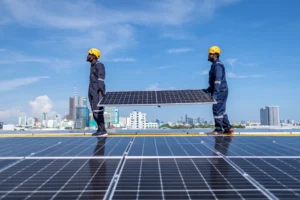
What Are The Most Common Mistakes When Getting A Residential Solar? Share: Facebook Twitter LinkedIn Pinterest The most Common Mistakes When Getting A Residential Solar
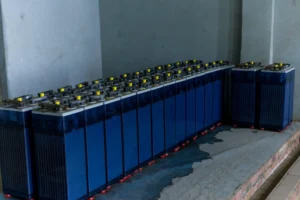
How Do I Maintain The Batteries In My Off-Grid Solar Panel System? Share: Facebook Twitter LinkedIn Pinterest Off-grid solar panel systems have become increasingly popular

What Are The Most Common Causes Of Damaged Solar Systems? Share: Facebook Twitter LinkedIn Pinterest Solar energy is becoming an increasingly popular renewable source for
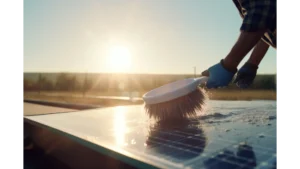
How Do I Maintain And Clean My Solar Panels? Share: Facebook Twitter LinkedIn Pinterest Maintaining and cleaning your solar panels is essential to ensure they
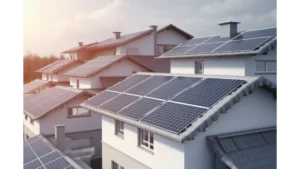
What Warranties Are Available For Residential Solar Panels Share: Facebook Twitter LinkedIn Pinterest Homeowners righfully ask “What Warranties Are Available For Residential Solar Panels ?”
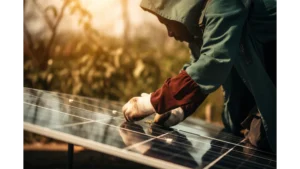
What Kind Of Maintenance Do Solar Panels Require? Share: Facebook Twitter LinkedIn Pinterest As solar energy becomes more popular, more and more people are turning